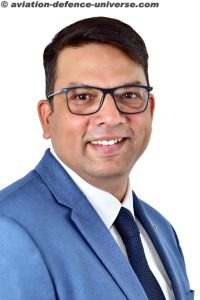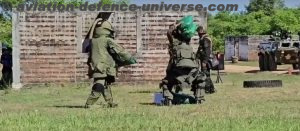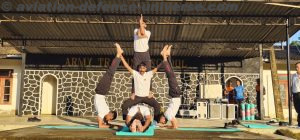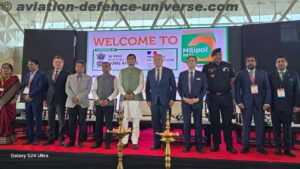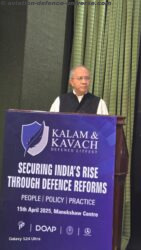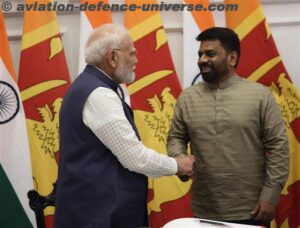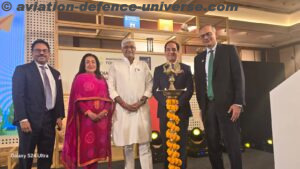- The Hidden Power Shaping Modern Global Affairs
By Jai Kumar Verma
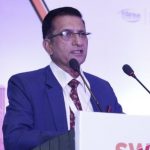
New Delhi. 15 August 2024. In an increasingly interconnected and volatile world, the role of intelligence agencies has never been more critical. From the battlefields of World War II to the covert operations of the modern era, intelligence has consistently been a decisive factor in shaping the outcomes of global events. Whether it’s providing early warnings of impending threats, gathering vital military and economic data, or influencing political developments, intelligence agencies are at the forefront of national security and foreign policy. Intelligence today evolves as a management task exploring its multifaceted roles, methods, and the ever-present challenge of balancing secrecy with strategic impact.
Napoleon Bonaparte, who won multiple wars, knew the importance of intelligence. In World War II Richard Sorge code name “Ramsay” who was a Soviet agent took the cover of a German journalist and was active in Germany and Japan. He informed Soviet Union well before the attack that Germany would attack Soviet Union, but Japan would not attack. After getting the information Soviets transferred 18 Divisions, 1,700 tanks and more than 15,00 aircraft from Siberia and Far East to the Western front to fight the forces of Germany. The transfer of troops occurred at the most crucial times, and Germany was defeated in World War II. Nonetheless Sorge was arrested, tortured and hanged.
Intelligence organisations provide their government the essential insights about diverse threats including political and security threats, cyber-attacks, military and terrorist threats, espionage activities of adversaries etc. These inputs are essential to formulate the short- and long-term policies of the country, the military buildup, diplomatic initiatives just to name a few.
The intelligence agency of any country is responsible for the collection of information and converting it into an actionable intelligence and pass it on to the agencies dealing with national security, defence, public safety and foreign policy. Intelligence organisations use overt as well as covert methods including espionage, interception to collect information.
The intelligence agencies are expected to give early warning to the government about the forthcoming calamity. The intelligence organisations should also render assistance to the government in the resolution of the crisis by providing the latest information about the crisis, how, why and who created the problem and how to counter the opponents.
The intelligence agencies are expected to provide military intelligence which would include the preparation, procurement of new armaments, training, operational planning of the friends and foes as well as the capabilities of their opponents and their friends and foes.
On one hand the intelligence agencies should try to procure intelligence of opponents and on the other hand they should protect their sensitive data and classified information which is known as counterintelligence. The capable intelligence organisations should have sources and resources to clandestinely influence the events in such a way that the result of the crisis emerges in the national interest of the country.
Few top most intelligence organisations of the world are involved in smuggling of arms and narcotics, assassinations, overthrowing of unfavourable regimes, launching of misinformation and disinformation campaign, curbing the progress of their rivals through demonstrations, strikes, agitations etc. Sometimes the agitators close the roads, trains etc. which harms the progress of the country.
Intelligence organisations have to procure diverse types of information as defence forces want military intelligence of the opponents, while scientists need scientific intelligence. Foreign office needs political intelligence while police and other security agencies need information about terrorism, infiltration or information about terrorist outfits. Custom department needs information pertaining to smuggling of contraband including drugs. All intelligence organisations fix their aim and determine what information the organisation wants to gather. Once the goal is fixed then information is gathered and converted into intelligence. Sometimes the gathered data is kept in record for collation purposes and later the data is used.
As importance of intelligence is enhancing, it has become a big industry. According to a report United States spends about $30 billion every year on multiple intelligence outfits and it employs more than two lakh (two hundred thousand) persons in U.S.A. and several thousand people abroad. Intelligence officials claim that the then Soviet Union was spending much more money and was employing more people for its intelligence operations. In fact, all countries have intelligence agencies, and these countries spent large sums on overt and covert intelligence operations as per the requirement and financial resources of the country.
Although political intelligence is very important for all the countries as the countries formulate their foreign policies accordingly, but political information is easy to collect but difficult to predict its correctness. Several times the situation changes so rapidly that all information, assessments and analysis becomes meaningless. Political intelligence is collected through diplomats, leaders of political parties, journalists, open sources including newspapers, magazines and through sources and agents.
Military intelligence is hard to procure, and it is collected through military attaches, satellites and through agents. Through satellites, information is gathered about different military units, their movements and weapons. Satellites also provide information about production of ballistic missiles and weapons of mass destruction.
Country’s economy is vital to decide its military strength, political stability and foreign policy. Hence the intelligence agencies give special emphasis on collection of opponents natural resources, industrial production and capability, its finance, import and export, Gross National Product etc.
There is constant advances in technology, scientific advances and new research therefore the intelligence agencies have to know the new techniques of how to procure information and also how to secure your own information. Few countries’ intelligence organisations steal new inventions of other countries and use them for their progress. Intelligence organisations also collect data of their adversaries about their population, climate, personal characteristics of their leaders to decide their future course of actions.
Ninety percent or more information is collected through open sources which includes academic and professional publications, radio/T.V. news and debates, think tanks reports, commercial data, public & census data, internet etc.
Remaining ten percent information is collected through covert sources which includes imagery intelligence which consists of aerial and space exploration, signal intelligence which comprises of electronic eavesdropping and interception of cipher documents and lastly the queen of intelligence collection is human intelligence. For collection of human intelligence sources are raised and other trade craft techniques are used to handle the agents.
The importance of agents is considerably enhanced because large number of intelligence organisations are involved in overthrowing of regimes, organisations of demonstrations and agitations and killings of enemies of the country. The critics mention that because of lack of human intelligence the U.S. security agencies could not know about the deadly terrorist attacks on New York and Washington DC on 11 September 2001.
Bangladesh watchers claim that Inter Services Intelligence (ISI), Ministry of State Security (MSS) of China were behind the recent overthrow of Sheikh Hasina’s government in Bangladesh. It is also claimed that U.S. also helped ISI financially to abort Hasina’s rule. These are clandestine operations hence these allegations are based on analysis and Bangladesh watchers have no hard intelligence about the involvement of these countries.
In 1954 Central Intelligence Agency (CIA) organised the overthrow of Guatemala government through military coup. In 1980 U.S., European and Pakistani intelligence organisation supported Mujahideen in Afghanistan. On 31 July Hamas political Chief Ismail Haniyeh was killed in Iran with a “short-range projectile”.
Asif Merchant a Pakistani national who stayed for some time in Iran came to U.S. from Pakistan to hire persons to assassinate important people in U.S. Last month he was arrested on charges of plotting the assassination of former president Donald Trump. There are several evidence that Pakistan has launched a low intensity war against India, and it infiltrates terrorists in India especially in Kashmir.
The intelligence agencies when launch clandestine operations special emphasis is given on “plausible deniability”. Even in case of best planning, possibility of exposure of covert operations cannot be ruled out consequently all intelligence organisations always keep option of “plausible deniability”.
Plausible deniability is a strategic concept used in covert operations and intelligence activities, allowing governments or organizations to deny involvement in illicit or controversial actions. This strategy is carefully designed so that, even if the operation is exposed, there is no direct evidence linking the actors to the higher authorities who authorized it. This allows those in power to evade accountability, maintaining a veil of innocence. The concept plays a crucial role in international relations and espionage, where secrecy and the ability to disavow actions are often as important as the actions itself. For instance, when intelligence agencies engage in covert activities like regime change or targeted assassinations, they ensure that the operations are planned and executed in such a way that their government’s involvement cannot be conclusively proven, thus enabling plausible deniability.
(Jai Kumar Verma is a Delhi-based strategic analyst and member of United Services Institute of India and The Manohar Parrikar Institute for Defence Studies and Analyses,. The views in the article are solely the author’s. He can be contacted at editor.adu@gmail.com)






































